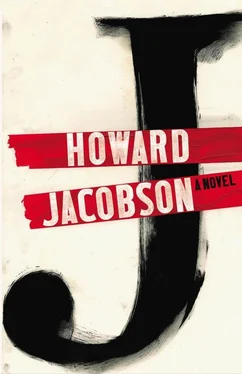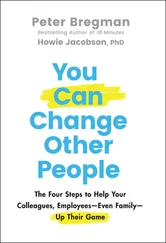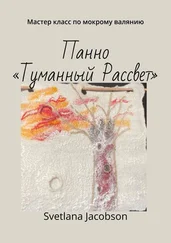She thought she heard her parents crying in the night.
Her mother’s words about the finality of fire stayed in her mind. She asked her if fire burned everything.
‘Almost everything.’
‘So what doesn’t it burn?’
Her mother never took time to deliberate. She had an answer to every question ready, as though she knew it was going to be asked. ‘Love and hatred,’ she said. ‘But I might be wrong about love.’
‘How can you burn love?’ Sibella wanted to know.
‘By burning the people who feel it.’
‘So why can’t you burn hatred?’
‘Because hatred exists outside of people. I liken it to a virus. People catch it. Disgust the same. That’s another thing that’s flameproof. It lives for ever. So my advice to you is never to inspire it.’
‘Love or disgust?’
‘Ha! The cynical answer is “both”. But I am not a cynic. Just a pessimist. So my prayer for you is that you will inspire love, but not disgust.’
‘How do I do make sure I don’t?’
Her mother looked at her and this time thought a while before answering. Then she laughed her crazy woman’s laugh. ‘You can’t!’
It was because she feared her mother was right and that hatred and disgust were indestructible by flame that Sibella threw the book into the sea. It had disgusted her father, it disgusted her mother even as she was writing it, and in so far as she could understand its ravings, it disgusted Sibella. So the bottom of the sea, where it could disgust the fish, was the best place for it.
As for what her mother told her about fire, she tried to live by it thereafter. She sat on the cliffs above the cottage and burned things — papers, letters, photographs, handkerchiefs, wild flowers. Sometimes, after she was married, she thought she would have burned her jewellery had it been flammable.
She had a lot of time, while her husband worked on his lathe and Kevern was at school, in which to worry and remember, though she couldn’t remember ever coming to Port Reuben which was not, her mother had once inadvertently let slip, her place of birth.
‘So where was my place of birth?’ she asked.
‘Somewhere else.’
‘Where?’
‘Somewhere far.’
‘Was it nice?’
‘Nowhere’s nice.’
‘Why did we leave?’
Her mother ran her fingers through her distracted hair. ‘It seemed a good idea at the time.’
Her father overheard. ‘It was a good idea at the time,’ he said. ‘It still is a good idea. We’re alive, aren’t we? Just don’t answer any questions.’
‘What questions?’
‘And don’t ask so many questions either.’
And that was all they told her. Her mother kissed her on the head and returned to the kitchen table to go on writing the book that never could and never would be finished. There wasn’t much talking in the house. Her father, too, preferred silence to conversation and work to pleasure. Both her parents seemed never to want to finish what they were doing, as though the moment they finished they’d be finished themselves.
She remembered how her mother worked, with a bright light to ease her depression always shining in her face, surrounded by books (which to Sibella’s sense only made the depression more intense), twisting loops of her hair around her forefinger, her head propped between two fists when she was thinking, and then her mouth opening and closing as she wrote, occasionally laughing like a hyena, though whether at something she had read or something she had written, something that amused her or something that made her angry — because crazy people laughed when they were angry as well as when they were amused — Sibella was never sure.
‘Don’t read over my shoulder, Sibella,’ her mother would tell her when she tried to find out, ‘you’re blocking my light,’ but in so absent-minded a manner that Sibella felt it was all right to stay where she was and go on reading. She understood little of it at the time, not even the drawings and photographs her mother glued into the book, and wouldn’t have sworn that she understood it later when she had all the time in the world to absorb its meanings. But a few elusive phrases lodged in her mind — ‘when they saw a moneylender they saw a bloodsucker, for those two defiled substances, money and blood, circulate alike’; ‘whoever cleans bodies is hated irrationally for doing what needs to be done’; ‘let my child be brought up to the highest level of civilisation, she will still always be thought of as a divine executioner, the child of divine executioners, and must always live in expectation of execution herself’ — and they were sufficient to persuade her that it had to be destroyed.
ii
Aged forty-five, and appearing older — while not growing crooked like her father, she had never possessed an iota of her mother’s looks — she tried to inspire love, as her mother had hoped she would, and had an almost affair with Madron Shmukler the village butcher. ‘You are nothing to write home about yourself,’ she told him when he expressed surprise that she attracted him given that she wasn’t at all pretty and not remotely his type. He too was forty-five and looked older. They didn’t bother to go through the routine of discussing their otherwise-engaged spouses, it was all so predictable. He would deliver meat to the cottage and when the coast was clear they would climb the cliffs separately, as though going in different directions — though there was nowhere for either of them to go — and then meet on Port Reuben Head, which gave them a good view of anyone approaching. Here they would sit on the grass, surprised to be attracted to each other, and half-heartedly — no, quarter-heartedly, she thought — make companionable if perfunctory contact. He would put his hands on her breasts, which were still surprisingly soft under an item of clothing he was unable to name, and she would put her hands inside his trousers. What she found was surprisingly soft too.
Could you call that an affair? Neither of them thought so but they went on doing it, intermittently, until they were too old to climb the cliffs.
She had picked him out at the start of it because he was a butcher and she wanted someone to talk about blood to. Did he feel it polluted him?
‘Do I feel it what ?’
‘What I want to know is whether butchers feel unclean. Do they fear they have dirty hands?’
He took his own hands out of her shirt — was it a shirt? — and examined them. ‘Look for yourself,’ he said. ‘You have to wash a lot in my line of work.’
‘No, I mean morally unclean. Spiritually. .’
‘Cutting chops?’
‘Slaughtering. .’
‘I don’t slaughter. I’m more like an undertaker. The animals come to me already dead, but instead of burying them I cut them up and sell them to you.’
Theirs was first and foremost a commercial relationship, he didn’t want her to forget. Though later, as a sign of his maturing fondness, he didn’t charge her.
He reached for the worn handbag she carried everywhere with her, though she kept almost nothing in it. ‘Same with a tanner,’ he said. ‘Whoever treated the leather for this old thing didn’t actually skin the animal.’
She didn’t like the way he handled her bag. ‘But you’re still a link in the chain,’ she said.
He stared at her in bafflement. What did she mean? Who was she? What was he doing with her? She was small and round, with flickering blue eyes and discoloured ping-pong-ball cheeks, and wore old-fashioned clothes. She reminded him of Miss Klug, one of his old primary-school teachers, unless what she reminded him of was how Miss Klug had made him feel — embarrassed to be her favourite, but safe. He was nothing to write home about himself, as Sibella had reminded him, but his butcher’s brawn and innocent blue eyes had excited a few women over the years, and but for his being married and having four sons, he wouldn’t have been embarrassed to be seen with any of them. Sibella, though, was not a woman he wanted anyone to know about. Was she crazy?
Читать дальше












